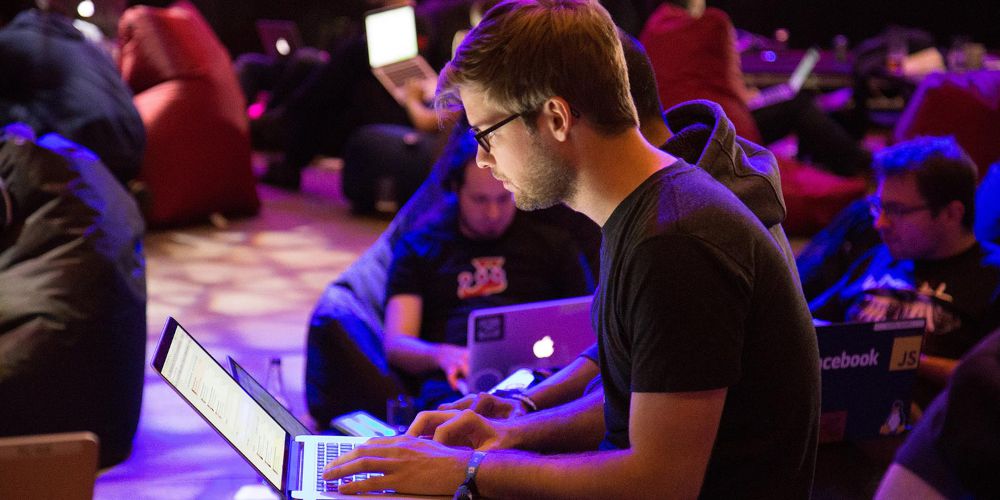"Nerd lifestyle" is an encompassing identity that a lot of us are searching for, either through affiliation or product placement.
As we mentioned in our article on the major franchises that helped shape nerd culture, this lifestyle continues to evolve as the overall subculture grows bigger.
When you get down to it, however, what does the term "nerd lifestyle" even mean? Why do we care so much about it? Why do we use it as a form of self-identification?
Well, the reasons why we identify with it are simple—it's a form of community, and humans are, by and large, social creatures. This in itself is not a bad thing. When we use this lifestyle to keep others out, however, it becomes a problem.
Why We Cling to Nerd Lifestyle
Think of the nerd community a bit like a church. I don't mean that in a bad way, either. I just mean that you have:
- Your canon (the original piece of media that everyone clings to),
- Your preachers (those that create fan content and spread the good word of the canon),
- Your adherents (the fans who consume the content),
- Your governing set of rules (how the fandom decides to behave).
As you would in any other organization, you and your fellow adherents try to follow the rules of this lifestyle. It helps you make sense of the world. You observe fandom holidays, and you follow the canon as closely as you can in order to further this agenda. Through your organized get-togethers you foster an even greater sense of community.
In Maslow's Hierarchy of Needs, this confluence of the physical, security-related, social, and ego-based desires gives rise to self-actualization: the top echelon in the pyramid. In his article for Psychology Today, Neel Burton explains it as thus:
Once a person has met his deficiency needs, he can turn his attention to self-actualization; however, only a small minority of people are able to self-actualize because self-actualization requires uncommon qualities such as honesty, independence, awareness, objectivity, creativity, and originality.
This is basically what we're searching for when we aim for the nerd lifestyle. To be able to expend our energy on a creative outlet is already a privilege because our other desires have been met.
Wanting a nerd lifestyle is not bad, but because it is part of the hierarchy of needs it can become a cornerstone in someone's existence. As such, people can get precious about it.
Sometimes insiders do not want others rocking this very steady boat, so when new people come along and change the definition of what it means to be a "nerd", those already in the congregation may feel threatened by it. They may try to expel this person through force.
Obviously, this dynamic isn't good.
How This Lifestyle Gets Used to Gatekeep Others
In his June 2018 article for The Guardian, Luke Holland points out that this desire to expel perceived newcomers doesn't affect just the fans, but those creating the content, too:
Earlier this week, Kelly Marie Tran, the Vietnamese-American actor who plays Rose (and the first WoC in a lead role in the saga) deleted all her Instagram posts. While Tran hasn't specifically stated that online trolling is the reason she left social media, since the release of The Last Jedi in December she's been on the receiving end of a torrent of online abuse.
This harassment of professionals and other fans is a constant, and it's morbidly ironic considering that the origin of "nerd culture" stemmed from a shared sense of ostracization.
If you've experienced this ostracization before, why would you inflict it on others? Why would you make make the nerd lifestyle a repetition of the power system that personally wronged you?
I don't have all the answers to this, but we have an opportunity to create something better. We must break this cycle.
How to Change It
Genre fiction—and the nerd culture that arose from it—is about dreaming for a better future. This is the canon we consume, and we need to make an active effort to prop up those voices in the community who are doing good works. We must also prop up newcomers and those creating content alike.
Additionally, we must make an active effort to counteract fear mongering and clickbait; to reject those articles and voices that seek to pit different factions of fans against each other.
This shouldn't be an Us Versus Them scenario, because we're all bound by the same tenants and are seeking the same basic needs. Let's celebrate this collective identity and welcome others into it. By doing so we'll create a better lifestyle for tomorrow.
